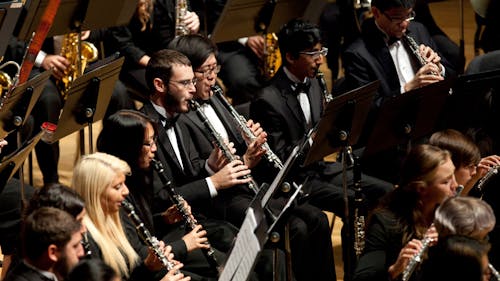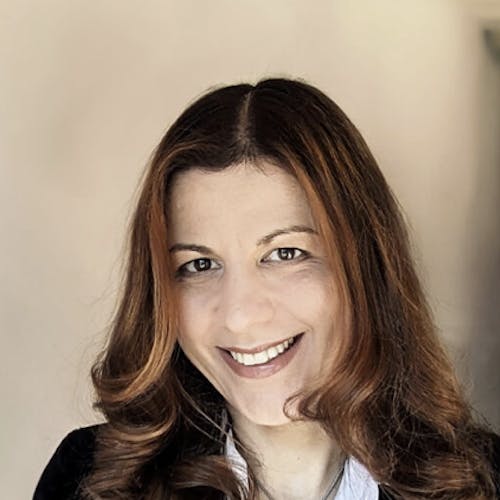Music plus microplastics: Upcoming concert features U. wind ensemble, microplastic pollution research

This Friday, the Rutgers Wind Ensemble will participate in a showcase of arts and narration to educate attendees on microplastics and their risks, according to a press release.
The release said the event, titled "Deep Blue: The Beauty of Our Water World," will be jointly sponsored by the Mason Gross School of the Arts, School of Environmental and Biological Sciences and School of Engineering.
Kraig Alan Williams, conductor for the Rutgers Wind Ensemble and director of the Wind Studies Program at Mason Gross, said the event will be similar to demonstrations held by planetariums but will include the added feature of interacting with the performers.
Though the event will take place this upcoming Friday evening, Williams said the idea for the event originated in the summer while he visited beaches in North Carolina. He said his passion for the ocean and the crucial role it plays in our climate sparked the idea for the event.
"As someone who also enjoys hiking near streams, rivers and waterways, I was always troubled by the amount (of) plastic debris that seemed poised to enter our oceans and wondered what happens to it all," Williams said.
Two individuals who created the event with Williams included Nicole Fahrenfeld, an associate professor in the Department of Civil and Environmental Engineering, and Robert Chant, a professor in the Department of Marine and Coastal Sciences.
These individuals were in charge of some of the research on microplastics that Williams said he considered while creating this event — specifically, an article Chant produced and a presentation Fahrenfeld delivered at the Impacts of Microplastics in the Urban Environment Conference.
With respect to the event, Chant said that he was responsible for incorporating information on the effects of plastic pollution in the ocean and climate change as a whole.
He said a major challenge in planning the event was navigating existing scientific literature and condensing it to fit within the performance.
Williams said the existing disparity between the arts and sciences arises due to their different jargon, but he said otherwise, the two are similar.
"I think an anonymous philosopher once wrote, 'Science is a discipline pursued with passion, art is a passion pursued with discipline,'" he said. "Both seek to better understand life and the surrounding world, and both seem to be motivated by a desire to improve the quality of life for the sake of humanity."
Williams said overlaps between the arts and sciences could foster benefits such as new avenues of research and better communication between scientific authorities and laypeople. Fahrenfeld said she hopes event attendees can gain an appreciation for interdisciplinary work at the University.
"Scientists and engineers are often charged with relying upon logic for drawing conclusions," she said. "But, it is likely people's feelings on an issue, including environmental ones, that drive more action than any logic."
Chant said he wants event attendees to understand how research can be used for both increasing general knowledge and solving real-world issues. (fourth question).
Existing literature on the effects of microplastics is limited, but studies have shown that they can take in impurities and enter global food chains when aquatic animals consume them, according to research from the Department of Marine and Coastal Sciences.
"Microplastics, synthetic plastic fragments less than 5 mm in diameter, are now pervasive in our water systems," the department website said. "And with increasing plastic production and waste, microplastics are a growing global threat to the health of our ocean and waterways."
With respect to planning the upcoming event, Williams, Fahrenfeld and Chant all said that their teamwork was uncomplicated and enjoyable.
"Part of our charge in performing federally funded research is making sure there are broader impacts that result from our work," Fahrenfeld said. "That often involves thinking about public science literacy, outreach to K-12 students, etc. This is the most creative outreach opportunity I'll have participated in."



